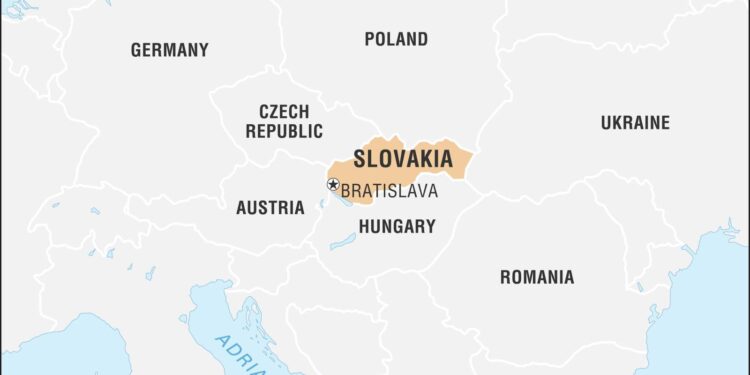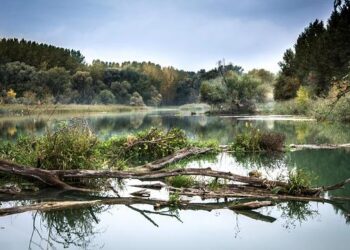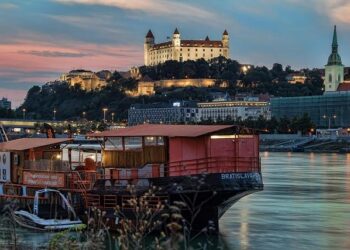Slovak Prime Minister Robert Fico has secured reassurances from European Union officials regarding his country’s concerns over the planned phase-out of Russian gas supplies. Speaking after recent talks in Brussels, Fico emphasized the importance of a balanced transition that safeguards Slovakia’s energy security and economic stability. The EU’s assurances come amid broader efforts to reduce dependency on Russian energy in response to geopolitical tensions, highlighting the challenges faced by member states heavily reliant on Moscow’s gas imports.
Slovakia’s Fico Seeks Clarity on EU’s Russian Gas Phase-Out Timeline
Slovak Prime Minister Robert Fico has obtained clear assurances from the European Union regarding the timeline for phasing out Russian gas imports. Fico’s concerns primarily revolve around ensuring energy security during the transition period, emphasizing the need for precise and practicable deadlines. Brussels confirmed a flexible, yet firm approach aimed at balancing EU’s strategic energy independence with member states’ economic realities.
The EU’s response highlighted several key aspects:
- Gradual reduction of dependency on Russian energy sources by 2027.
- Financial support for infrastructure modernization to accommodate alternative energy supplies.
- Coordination mechanisms allowing member states to adjust phase-out plans based on individual national needs.
| Year | Expected Russian Gas Import Reduction | EU Support Measures |
|---|---|---|
| 2024 | 20% | Investment in LNG terminals |
| 2025 | 50% | Expansion of renewables |
| 2027 | Complete phase-out | Enhanced grid interconnectivity |
EU Provides Assurance on Energy Security Amid Transition Challenges
In a recent dialogue addressing energy concerns, the European Union has reassured Slovakia that adequate measures are in place to safeguard energy supplies during the critical transition away from Russian gas. Slovak Prime Minister Robert Fico expressed apprehensions about potential supply disruptions, but EU representatives emphasized a coordinated approach leveraging diverse energy sources and infrastructure resilience.
Key assurances highlighted include:
- Strategic reserves bolstering emergency preparedness
- Enhanced interconnections across member states for energy sharing
- Commitment to accelerate investment in renewable and alternative fuels
- Support for vulnerable national economies during the transition phase
| Energy Security Measure | Expected Impact |
|---|---|
| Gas Storage Capacity Increase | Ensures buffer during peak demands |
| Cross-Border Grid Upgrades | Enhances supply flexibility |
| Renewable Energy Funding | Accelerates green transition |
| Emergency Coordination Mechanisms | Improves rapid response capability |
Experts Recommend Diversifying Energy Sources to Mitigate Supply Risks
Industry analysts emphasize the critical need for countries to broaden their energy portfolios to reduce dependency on any single source or supplier. This strategy is seen as a vital buffer against geopolitical tensions and potential disruptions in supply chains, especially in light of the ongoing concerns surrounding Russian gas exports to Europe. Experts argue that embracing a mix of renewable energy, liquefied natural gas (LNG) imports, and domestic resources can enhance energy security while promoting environmental sustainability.
Key recommendations from energy strategists include:
- Investment in renewable technologies like wind, solar, and hydro to reduce reliance on fossil fuels.
- Expansion of LNG infrastructure to diversify natural gas supply routes.
- Development of regional energy interconnections to facilitate cross-border energy flows and optimize supply-demand balance.
| Energy Source | Benefits | Challenges |
|---|---|---|
| Renewables | Low emissions, Local generation | Intermittency, High initial costs |
| LNG | Flexible imports, Diversification | Infrastructure needs, Market volatility |
| Domestic Gas | Reliable supply, Established networks | Finite reserves, Environmental impact |
To Conclude
As Slovakia navigates the complexities of reducing its reliance on Russian gas, Prime Minister Robert Fico’s recent discussions with EU officials highlight the bloc’s commitment to addressing member states’ energy security concerns amid the transition. While challenges remain, the assurance from the European Union signals a collaborative approach to balancing climate goals with national interests, underscoring the ongoing dialogue shaping the future of Europe’s energy landscape.
















